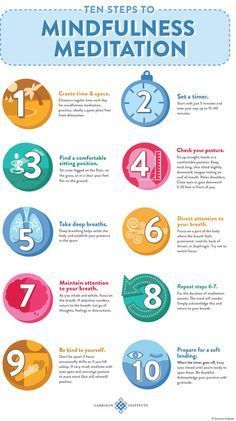
Mindfulness meditation is a powerful technique that has been practiced for centuries to achieve inner peace, mental clarity, and enhanced focus. In today’s fast-paced world, where distractions are abundant, taking some time each day to engage in mindfulness meditation can greatly benefit your overall well-being.
What is Mindfulness Meditation?
Mindfulness meditation is the practice of intentionally focusing your attention on the present moment, without judgment. It involves becoming fully aware of your thoughts, feelings, bodily sensations, and the surrounding environment.
The Benefits of Mindfulness Meditation
Mindfulness meditation offers numerous benefits for both your mental and physical health:
Inner Peace: Regular practice of mindfulness meditation helps you cultivate a sense of inner peace and calmness. It allows you to detach from worries and anxieties about the past or the future, bringing your attention to the present moment.
Improved Focus: By training your mind to focus on the present, mindfulness meditation enhances your concentration and attention span. It reduces mental clutter, helping you stay focused on your tasks or goals.
Stress Reduction: Mindfulness meditation has been shown to reduce stress levels significantly. It activates the relaxation response in your body, reducing the production of stress hormones and promoting a sense of overall well-being.
Emotional Regulation: Through mindfulness meditation, you develop a greater ability to observe your emotions without immediately reacting to them. It allows you to respond to situations with more composure and less impulsiveness.
Increased Self-Awareness: Mindfulness meditation helps you become more acquainted with your thoughts, emotions, and behavioral patterns. This self-awareness enables you to make conscious choices and change any negative patterns that may be holding you back.
Improved Sleep: By reducing stress and promoting relaxation, mindfulness meditation can significantly improve the quality of your sleep. It helps quiet the mind and prepare it for a restful night of sleep.
Getting Started with Mindfulness Meditation
Here are some steps to help you begin your journey into mindfulness meditation:
Find a Quiet Space: Choose a tranquil and comfortable space where you won’t be easily disturbed. This could be a quiet room in your house or even a peaceful spot outdoors.
Assume a Comfortable Posture: Sit in a position that allows you to be both relaxed and alert. You can either sit on a meditation cushion or a chair with your back straight.
Focus on Your Breath: Close your eyes and bring your attention to your breath. Notice the sensation of the air entering and leaving your body. Allow your breath to guide you into the present moment.
Observe Your Thoughts: As thoughts arise, simply observe them without judgment or attachment. Acknowledge their presence and gently bring your attention back to your breath. Remember, the goal is not to stop thinking, but to watch your thoughts without getting caught up in them.
Practice Regularly: Start with short sessions of 5-10 minutes and gradually increase the duration as you become more comfortable. Consistency is key to reaping the benefits of mindfulness meditation.
Incorporating Mindfulness into Your Daily Life
While setting aside specific time for formal meditation is essential, it is equally important to integrate mindfulness into your daily activities:
Slow Down: Take moments throughout the day to slow down and bring your attention to the present moment. Whether it’s savoring the taste of your food or fully engaging in a conversation, be fully present.
Use Mindfulness Apps: There are various smartphone apps available that provide guided mindfulness meditations and reminders to practice throughout the day. They can be a helpful tool in cultivating mindfulness.
Practice Mindful Walking: During your walks, focus on the sensation of each step, the feeling of the ground beneath your feet, and the movement of your body. Walking meditation can help bring mindfulness into your daily exercise routine.
Observe Your Thoughts and Emotions: Throughout the day, check in with yourself and observe your thoughts and emotions without judgment. This practice can help you respond to challenges with greater clarity and equanimity.
Conclusion
Mindfulness meditation is a valuable tool for achieving inner peace, enhancing focus, and improving overall well-being. By regularly practicing mindfulness, you can cultivate a deeper connection with the present moment, reduce stress levels, and develop a greater sense of self-awareness. Incorporate mindfulness into your daily routine and experience the transformative power it holds.

